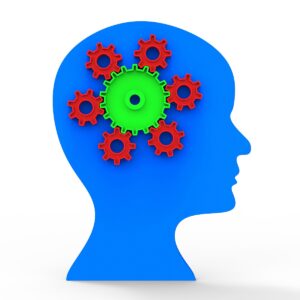Increase Brain Power
Table of Contents
- Introduction
- What is Brain Power?
- The Neuroplasticity Factor
- Myths and Facts
- The Brain-Boosting Diet
- Supplements for Cognitive Enhancement
- The Mind-Body Connection
- Best Exercises for Brain Health
- Mental Exercises to Boost Brain Power
- Sleep and Brain Function
- Stress Management
- In Summary
Introduction
Welcome to the fascinating world of brain power! Have you ever wondered why some people seem to effortlessly remember names, solve complex problems, or focus intently on tasks? The answer lies in the incredible capabilities of the human brain. But here’s the good news: you don’t have to be born a genius to unlock your brain’s full potential.
Contrary to popular belief, our brains are not hardwired with limitations. In fact, they are incredibly adaptable and capable of learning and growing throughout our lives. This article aims to debunk myths and provide you with actionable tips and strategies to boost your brain power. Whether you’re looking to improve your memory, enhance your focus, or become a better problem solver, we’ve got you covered.
So, why is brain power so important? In today’s fast-paced world, cognitive abilities like focus, memory, and problem-solving are more crucial than ever. They can make the difference between success and failure in your career, relationships, and even your overall well-being.
In the sections that follow, we’ll delve into the science behind brain power, explore the role of nutrition and exercise, and offer practical tips for mental and lifestyle changes that can supercharge your cognitive abilities. So, let’s embark on this enlightening journey to unlock the untapped potential of your mind!

Power up your brain!
The Science Behind Brain Power
What is Brain Power?
When we talk about “brain power,” what exactly do we mean? The term is often thrown around casually, but it encompasses a range of cognitive abilities that allow us to perform daily tasks, solve problems, and make decisions. Let’s break it down into its core components:
Memory
- Short-term Memory: Enables you to remember information for brief periods, like a phone number you just looked up.
- Long-term Memory: Allows you to store and retrieve information over extended periods, such as historical facts or personal experiences.
Focus and Attention
- Selective Attention: The ability to concentrate on a specific task while ignoring distractions.
- Sustained Attention: The capacity to maintain focus over prolonged periods.
Problem-Solving and Critical Thinking
- Analytical Skills: The ability to break down complex problems into smaller, manageable parts.
- Creative Thinking: The capacity to think outside the box and come up with innovative solutions.
Emotional Intelligence
- Self-awareness: Understanding your own emotions and how they affect your thoughts and actions.
- Empathy: The ability to understand and share the feelings of others.
Speed and Efficiency
- Processing Speed: The rate at which you can understand and react to information.
- Multitasking: The ability to handle multiple tasks simultaneously, although this is often less effective than focusing on one task at a time.
Understanding these components can help you identify which areas you’d like to improve and tailor your brain-boosting strategies accordingly.
By understanding what brain power actually entails, you can better appreciate the various ways to enhance it. Whether you’re looking to remember names effortlessly, focus like a laser, or solve problems like Sherlock Holmes, boosting your brain power can help you get there.

The Neuroplasticity Factor
One of the most groundbreaking discoveries in neuroscience is the concept of neuroplasticity. Gone are the days when scientists believed that the brain’s structure and function were fixed after a certain age. Neuroplasticity shatters this myth, revealing that our brains are incredibly adaptable and capable of change throughout our lives.
What is Neuroplasticity?
Neuroplasticity refers to the brain’s ability to reorganize itself by forming new neural connections. This means that your brain can adapt, learn, and even heal, allowing you to improve various cognitive functions like memory, focus, and problem-solving.
How Does It Work?
The brain consists of neurons, or nerve cells, that communicate with each other through synapses. When you learn something new or engage in activities that challenge your brain, these synapses strengthen, and new neural pathways are formed. This process is the essence of neuroplasticity.
Factors That Influence Neuroplasticity
- Age: While it’s easier for the brain to adapt during childhood, neuroplasticity occurs at all ages.
- Environment: A stimulating environment that challenges the brain can enhance neuroplasticity.
- Activity: Physical and mental exercises can promote the formation of new neural pathways.
- Injury: After a brain injury, other parts of the brain can take over functions of the damaged areas, thanks to neuroplasticity.
Practical Implications
Understanding neuroplasticity opens the door to endless possibilities for cognitive enhancement. It means that with the right strategies and activities, you can train your brain to become more efficient, just like you would train your muscles at the gym.
The concept of neuroplasticity is not just a scientific curiosity; it’s a beacon of hope and a call to action. It tells us that no matter your age or background, your brain has the potential for remarkable growth and adaptation. So, the next time you think you’re “just not good at” something, remember that your brain is designed to prove you wrong.
Myths and Facts
When it comes to brain power, there’s no shortage of myths and misconceptions that can lead people astray. Understanding the truth behind these myths can empower you to take effective steps to enhance your cognitive abilities. Let’s debunk some of the most common myths and replace them with facts grounded in scientific research.
Myth 1: We Only Use 10% of Our Brain
- Fact: This is a widely circulated myth, but the truth is that we use virtually all parts of our brain, and different regions are responsible for different functions. Brain scans show activity coursing through the entire organ, even while we are at rest or asleep.
Myth 2: IQ Tests Measure Your Intelligence Accurately
- Fact: While IQ tests can measure specific skills like math, spatial relations, and logical reasoning, they don’t capture the full range of human intelligence, including creativity, emotional intelligence, and practical wisdom.
Myth 3: Brain Damage is Always Permanent
- Fact: Thanks to neuroplasticity, the brain has a remarkable ability to adapt and heal itself, even after injury. While not all damage can be completely reversed, many cognitive functions can be improved through rehabilitation.
Myth 4: Older Adults Can’t Generate New Brain Cells
- Fact: Contrary to this belief, research has shown that new neurons can form in certain parts of the brain throughout life, a process known as neurogenesis.
Myth 5: Listening to Classical Music Makes You Smarter
- Fact: While listening to music can improve your mood and productivity, there’s no scientific evidence to support the claim that it can increase your IQ or make you “smarter.”
Myth 6: More Wrinkles on the Brain Mean More Surface Area, and Therefore, More Intelligence
- Fact: The number of wrinkles or gyri on the brain’s surface doesn’t necessarily correlate with intelligence. These features are more related to the evolutionary development of species rather than individual intelligence.
By dispelling these myths, we can focus on evidence-based strategies to boost our brain power. Knowledge is power, and in this case, it’s the power to unlock the full potential of your mind.
Nutrition and Brain Power
The Brain-Boosting Diet
You’ve probably heard the saying, “You are what you eat.” Well, this couldn’t be truer when it comes to your brain. The foods you consume play a significant role in how well your brain functions. Let’s delve into the types of foods that can give your brain the fuel it needs to operate at its best.
Essential Nutrients for the Brain
- Omega-3 Fatty Acids: Found in fatty fish like salmon, these are essential for brain health and cognitive function.
- Antioxidants: Foods rich in antioxidants, such as berries and leafy greens, can protect your brain cells from damage.
- Vitamins: B vitamins, in particular, are crucial for brain health, aiding in everything from mood regulation to memory.
Foods to Include in Your Diet
- Fatty Fish: Salmon, mackerel, and sardines are excellent sources of omega-3 fatty acids.
- Nuts and Seeds: Almonds, walnuts, and flaxseeds also provide healthy fats and vitamins.
- Berries: Blueberries, strawberries, and raspberries are rich in antioxidants.
- Whole Grains: Brown rice, whole-wheat bread, and oatmeal can provide sustained energy for the brain.
- Leafy Greens: Spinach, kale, and collard greens are packed with essential nutrients.
- Dark Chocolate: Contains cacao flavonoids. These are antioxidants that protect the brain from oxidative stress and inflammation. They also stimulate blood flow and neuron growth in the brain, enhancing learning and memory
- Coffee: contains caffeine and antioxidants. Caffeine boosts alertness, mood, and concentration by blocking a chemical that makes you feel sleepy.

Brain boosting foods.
Foods to Avoid
- Sugar and Processed Foods: High sugar intake and processed foods can lead to inflammation and cognitive decline.
- Saturated Fats: Found in red meat and full-fat dairy products, these can negatively affect cognitive function.
Hydration
Don’t forget about water! Proper hydration is essential for optimal brain function. Dehydration can lead to difficulties in focusing, thinking clearly, and even short-term memory loss.
Supplements for Cognitive Enhancement
While a balanced diet is the best way to get essential nutrients, some people opt for supplements like fish oil or ginkgo biloba to boost their cognitive function. However, it’s crucial to consult a healthcare provider before adding any supplements to your regimen.
Eating the right foods can be a game-changer for your brain power. By incorporating brain-boosting foods into your diet and avoiding those that can hinder cognitive function, you’re setting yourself up for mental success.
Supplements for Cognitive Enhancement
While a balanced diet rich in essential nutrients is the cornerstone of brain health, many people turn to supplements as a way to further enhance their cognitive abilities. However, it’s crucial to approach this topic with caution and informed knowledge. Here’s what you need to know:
Popular Cognitive Supplements
- Fish Oil: Rich in omega-3 fatty acids, fish oil supplements are among the most popular choices for cognitive enhancement. They are believed to improve memory and mental clarity.
- Ginkgo Biloba: This herbal supplement is often touted for its ability to improve focus and concentration.
- Bacopa Monnieri: Used in traditional medicine, Bacopa is believed to enhance memory and cognitive function.
- Rhodiola Rosea: Known for its adaptogenic properties, this supplement may help with stress resistance and focus.
- L-Theanine: Found in tea leaves, L-Theanine is said to promote relaxation without drowsiness, improving attention and focus.
Safety and Precautions
- Consult a Healthcare Provider: Before starting any new supplement, it’s essential to consult a healthcare provider, especially if you’re already taking other medications.
- Quality Matters: Not all supplements are created equal. Look for products that have been third-party tested for quality and purity.
- Potential Interactions: Some supplements can interact with medications or other supplements, leading to adverse effects.
The Science Behind Supplements
While some studies suggest that these supplements may offer cognitive benefits, the evidence is not universally strong. Many of these supplements require more rigorous scientific research to confirm their efficacy.
Individual Differences
It’s important to note that the effectiveness of these supplements can vary from person to person. What works for one individual may not necessarily work for another.
Supplements can be a tempting shortcut on the road to enhanced brain power, but they should not replace a balanced diet and healthy lifestyle. Always exercise caution and consult a healthcare provider to ensure that you’re making the best choices for your cognitive health.
Physical Exercise and Mental Fitness
The Mind-Body Connection
The relationship between physical exercise and mental fitness is a topic that has garnered significant attention in recent years. While most people associate exercise with physical benefits like weight loss and muscle gain, fewer realize the profound impact it can have on the brain. This section explores the fascinating connection between physical activity and cognitive function, often referred to as the “mind-body connection.”
How Exercise Affects the Brain
- Release of Neurotransmitters: Physical activity stimulates the release of neurotransmitters like dopamine and serotonin, which can improve mood and focus.
- Increased Blood Flow: Exercise increases blood flow to the brain, providing it with more oxygen and nutrients, essential for optimal function.
- Stress Reduction: Physical activity is known to reduce levels of the stress hormone cortisol, which can have a detrimental effect on cognitive function.
Types of Exercise for Cognitive Enhancement
- Aerobic Exercise: Activities like running, swimming, and cycling are excellent for cardiovascular health and have been shown to improve cognitive function.
- Strength Training: Lifting weights not only builds muscle but also has cognitive benefits, particularly in older adults.
- Yoga and Tai Chi: These mind-body practices improve flexibility and balance while also enhancing focus and mental clarity.
- High-Intensity Interval Training (HIIT): This type of exercise involves short bursts of intense activity and has been shown to improve memory and learning capabilities.

Weight training
Frequency and Duration
- Consistency is Key: Even moderate exercise for 30 minutes a day, five days a week, can offer significant cognitive benefits.
- Quality Over Quantity: More intense workouts may offer enhanced benefits, but even light activities like walking can make a difference.
Exercise and Age
- For Young Adults: Exercise can improve focus and academic performance.
- For Older Adults: Physical activity is crucial in preventing cognitive decline and can even improve memory and other cognitive functions.
The mind-body connection is a powerful tool in your quest for enhanced brain power. By incorporating regular physical activity into your lifestyle, you’re not just building a stronger body; you’re also building a stronger, more resilient mind.
Best Exercises for Brain Health
While we’ve established that physical exercise is beneficial for cognitive function, you might be wondering which types of exercise are particularly effective for boosting brain power. Here’s a rundown of some of the best exercises you can incorporate into your routine for optimal brain health.
Aerobic Exercises
- Running: One of the most straightforward and effective forms of aerobic exercise, running has been shown to improve memory and mental clarity.
- Swimming: This low-impact exercise is excellent for cardiovascular health and has a calming effect on the mind.
- Cycling: Whether it’s a leisurely bike ride or a more intense cycling session, this exercise improves cardiovascular health and cognitive function.

Strength Training
- Weight Lifting: Lifting weights not only builds muscle but also has cognitive benefits, particularly in older adults.
- Resistance Bands: These offer a less intimidating entry point into strength training and can be used for a variety of exercises.
Mind-Body Exercises
- Yoga: This ancient practice improves flexibility and balance while also enhancing focus and mental clarity.
- Tai Chi: Known for its slow, flowing movements, Tai Chi improves balance and has a meditative effect on the mind.

Tai Chi for mindfulness

Yoga for mental clarity
High-Intensity Interval Training (HIIT)
- Burpees, Jumping Jacks, and Sprints: These short bursts of intense activity have been shown to improve memory and learning capabilities.
Dance and Movement
- Zumba: This fun, high-energy dance workout not only improves cardiovascular health but also enhances coordination and rhythm.
- Ballet or Contemporary Dance: These forms of dance require a lot of focus and discipline, improving both physical and mental agility.
Outdoor Activities
- Hiking: Being in nature while also getting a good workout can improve mood and reduce stress.
- Kayaking: This water sport is not only a good upper body workout but also requires focus and coordination.

Try hiking to reduce stress
Choosing the right exercise for you can depend on various factors, including your current fitness level, interests, and specific cognitive goals. The key is to find activities that you enjoy and can commit to regularly. Consistency is crucial for both physical and mental benefits.
Mental Exercises to Boost Brain Power
Physical exercise is just one part of the equation when it comes to boosting your brain power. Mental exercises are equally important and can provide your brain with the challenge it needs to grow and adapt. Think of these as a “workout” for your mind.
Brain Games and Puzzles
- Sudoku: This number puzzle not only challenges your logic but also improves your number skills.
- Crosswords: A classic that tests your vocabulary and general knowledge.
- Memory Games: Games like matching cards can help improve your short-term memory.
- Logic Puzzles: These require analytical thinking and are excellent for enhancing problem-solving skills.
Mindfulness and Meditation
- Mindfulness: This practice involves being fully present and engaged in the moment, which can improve focus and reduce stress.
- Meditation: Regular meditation has been shown to increase gray matter in the brain, improving various cognitive functions.

Try meditation to improve cognative function
Creative Activities
- Drawing and Painting: Engaging in artistic activities can improve spatial awareness and fine motor skills.
- Writing: Whether it’s journaling or creative writing, putting pen to paper can improve language skills and emotional intelligence.
- Music: Learning to play a musical instrument can enhance auditory skills and improve focus and patience.
Social Interaction
- Conversations: Engaging in meaningful conversations can improve social skills and emotional intelligence.
- Group Activities: Participating in group activities like trivia games or book clubs can offer cognitive stimulation and improve your knowledge base.
Lifelong Learning
- Online Courses: Learning a new skill or subject can be incredibly stimulating for the brain.
- Reading: Regular reading not only improves vocabulary but also enhances comprehension and knowledge.
Mental exercises offer a wide range of benefits, from improved memory and focus to enhanced problem-solving and emotional intelligence. By incorporating these activities into your daily routine, you can give your brain the workout it needs to stay sharp and agile.
Lifestyle Changes for a Smarter You
Sleep and Brain Function
Often overlooked, sleep is a critical factor that directly impacts your cognitive abilities and overall brain function. In our fast-paced society, sleep deprivation has become all too common, but the consequences for your brain power can be severe. Here’s why sleep should be a non-negotiable part of your brain-boosting strategy.
The Importance of Sleep
- Memory Consolidation: During deep sleep stages, the brain consolidates memories, making it easier to recall information later.
- Cognitive Restoration: Sleep provides the brain with the opportunity to clear out waste and restore cognitive functions.
- Mood Regulation: Lack of sleep can lead to mood swings and increased stress, which in turn affects cognitive performance.
How Much Sleep Do You Need?
- Adults: The general recommendation is 7-9 hours of quality sleep per night.
- Teens: Adolescents require about 8-10 hours of sleep.
- Children: Younger children may need up to 11-14 hours, including naps.
Tips for Better Sleep
- Consistent Sleep Schedule: Go to bed and wake up at the same time every day, even on weekends.
- Create a Sleep-Friendly Environment: Make your bedroom a comfortable, dark, and cool space.
- Limit Screen Time: The blue light emitted by phones and computers can interfere with the production of the sleep hormone melatonin.
- Avoid Stimulants: Caffeine and alcohol can disrupt sleep patterns.

Good sleep habits will help your brain
Sleep Disorders and Cognitive Function
- Insomnia: Chronic inability to fall asleep or stay asleep can severely impair cognitive functions.
- Sleep Apnea: This disorder, characterized by interrupted breathing during sleep, can lead to cognitive decline if not treated.
Napping: A Double-Edged Sword
- Short Naps: A quick 20-30 minute nap can boost alertness and performance.
- Long Naps: Napping for too long can lead to sleep inertia, a groggy feeling that can impair cognitive function.
Prioritizing sleep is one of the most effective ways to boost your brain power. By understanding its importance and taking steps to improve your sleep quality, you’re investing in a sharper, more focused, and more resilient mind.
Stress Management
Stress is an inevitable part of life, but chronic stress can have a detrimental impact on both your physical health and cognitive abilities. Learning how to manage stress effectively is crucial for maintaining optimal brain function. In this section, we’ll explore various stress management techniques that can help you keep your mind sharp and focused.
How Stress Affects the Brain
- Cognitive Impairment: Chronic stress can lead to difficulties in concentration, memory, and decision-making.
- Emotional Toll: Stress can exacerbate mood disorders like anxiety and depression, which in turn can impair cognitive function.
- Physical Consequences: Elevated levels of the stress hormone cortisol can lead to physical health issues, which indirectly affect brain health.
Stress Management Techniques
- Deep Breathing: Simple deep breathing exercises can activate the body’s relaxation response, reducing stress levels.
- Mindfulness Meditation: This practice involves being fully present in the moment, which can help reduce stress and improve focus.
- Physical Exercise: As discussed earlier, exercise is an excellent way to reduce stress and improve cognitive function.
- Social Support: Talking to friends and family can provide emotional support, which is crucial for stress management.
Time Management
- Prioritize Tasks: Use tools like to-do lists or apps to prioritize your tasks and manage your time effectively.
- Take Breaks: Short breaks during work can help you relax and improve your focus and productivity.
- Set Boundaries: Learn to say no and set boundaries to avoid taking on too much, which can lead to stress.
Professional Help
- Counseling: Sometimes, professional help is necessary to manage stress effectively. Therapists can provide coping strategies tailored to your needs.
- Medication: In some cases, medication like anti-anxiety drugs may be prescribed. However, this should be a last resort and only under medical supervision.
Stress management is not just about avoiding stress but learning how to cope with it in a healthy way. By incorporating these techniques into your daily routine, you can mitigate the negative effects of stress on your brain and enhance your cognitive abilities.
In Summary
Boosting your brain power is not a one-time effort but a lifelong journey. From understanding the incredible adaptability of your brain through neuroplasticity to debunking common myths, we’ve covered a wide range of topics that contribute to cognitive enhancement. Whether it’s the foods you eat, the exercises you perform, or the amount of sleep you get, each aspect plays a crucial role in shaping your cognitive abilities.
We’ve also delved into the importance of mental exercises, stress management, and even the role of supplements. The key takeaway is that a multi-faceted approach is the most effective way to boost your brain power. Consistency, awareness, and a willingness to adapt and learn are your best allies in this endeavor.
Remember, it’s never too late to start. Your brain is designed to adapt and grow, no matter your age or current cognitive abilities. By implementing the strategies and tips discussed in this article, you’re not just investing in a smarter you, but also a happier and more fulfilled life.
Thank you for taking the time to read this comprehensive guide on increasing brain power. Here’s to a brighter, sharper, and more resilient you!